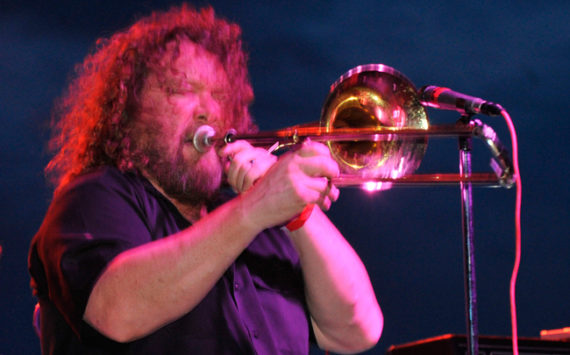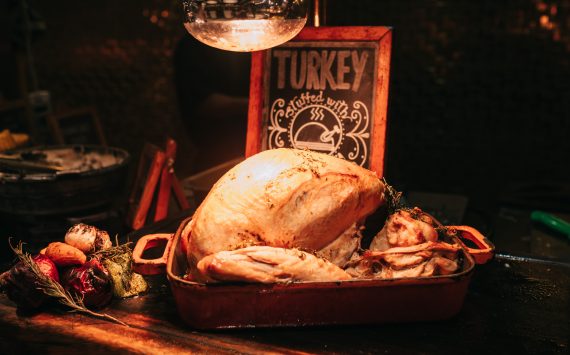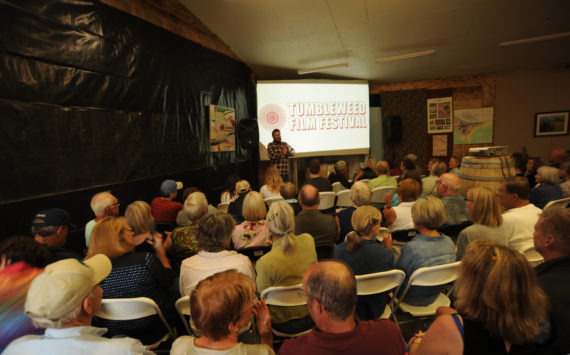Just outside of Oroville, a local economic boon is taking root – and whether or not we realize it, our town is already enjoying its first fruits.
Howling Dog Farms is a licensed marijuana production and processing business, one of the dozens of producers currently located in Okanogan County.

Two weeks ago, this column looked at the broad county-wide implications of the nascent marijuana industry. Howling Dog Farms is one local example within the county, both of how the industry benefits local towns, and how proposed changes to county policy could endanger those benefits. Full disclosure: Howling Dog Farms has hired me as a freelance designer, to build their website.
Just a few years ago, Paul Neir and his wife were a couple of semi-retired Washingtonians, looking for their next adventure. When I-502 passed in 2012, adventure presented itself in the form of legalized marijuana farming. And so Howling Dog Farms, their new business, was conceived.
The first question facing the aspiring agri-preneurs was where to locate their farm. Neir’s wife had long owned land in Oroville, where they would regularly visit throughout the year. Add on the region’s agriculturally blessed climate, affordable real estate, and the County’s rational and open approach toward marijuana farming, and the choice was clear – Howling Dog Farms would be born in Okanogan County. So Paul and his wife moved here to establish their business, and Oroville gained two new full-time residents.
Just through creating infrastructure and laying their business foundations, Howling Dog Farms has already poured resources – and money – into the local economy. “We’ve spent over $400,000 over the last two years just getting started, and about $200,000 has been spent locally in Okanogan County,” Neir notes. “We spend locally whenever possible, so that money is going to contractors, building materials, irrigation equipment, soil and agricultural supplies, equipment operators, designers, security, and more.” Of the roughly $200,000 spent within Okanogan County, Neir estimates that about $100,000 has been spent in and around Oroville itself. “This is not an inexpensive industry,” says Neir.
Employment is also a benefit that farms like the Neirs’ provide. “We currently have 3 full-time employees, including myself and my wife,” Neir notes, “But over the next year we’re expecting to hire three to six part-time employees. And as the business grows, so will our employment.”
And it’s worth reiterating that these expenditures are being sustained by revenue drawn from outside the county. “We’ll of course want to support local retailers, but the major retail markets are in places like Spokane, Seattle – the bigger cities,” Neir says. Since this coming year will see their first major harvest, expenditures up until now have mostly been covered by initial capital. Neir knows that most of their sales revenue will be drawn from outside Okanogan County – the same business model that sustains the apple, cherry, and other locally grown industrial crops.
As with tourism, businesses like Howling Dog Farms represent a golden ticket for local economic growth: expenditures are made locally, but the bulk of the money spent comes from outside the region. That kind of model is what generates long-term regional growth.
But the winds might be changing for Okanogan County, bringing an uncertain future for businesses like Howling Dog Farms.
Following resident complaints, the Okanogan Board of County Commissioners issued a six-month moratorium on the siting of any new marijuana farms, processing businesses, or retail stores, in the unincorporated boundaries of the county. That means no new businesses like Howling Dog Farms for at least six months – with an uncertain future beyond that.
There are, of course, legitimate concerns with any new business opening up. And there are some current marijuana farms that might not be in full compliance with existing regulations and permitting. Those are issues that need to be addressed, but they’re also issues that can be addressed while still embracing the industry as a whole, and the economic benefits it brings.
As Paul Neir puts it: “At the end of the day, we need to be good neighbors and responsible businesses. There are admittedly some growers out there that aren’t being good neighbors. These are real issues that we as an industry, and we as a community, can and will address. But to choke back an entire industry that could channel millions of dollars into the county and revitalize our region, all because a few growers have ugly fences or haven’t followed building guidelines – that seems like throwing the baby out with the bathwater.”
On Tuesday, May 3, the Okanogan Board of County Commissioners will hold a public meeting, to gather public input about the marijuana-business moratorium. This week there will be a meeting to consider proposed amendments to zoning regulations, which also directly impact the future of the marijuana industry in Okanogan County. Whatever your stance on these issues, upcoming decisions will determine concrete realities for our towns – and an engaged public is a sure ingredient for community prosperity.
See Related: To Grow or Not To Grow: Choosing the future of marijuana farms in Okanogan County




